#Bribery
Text
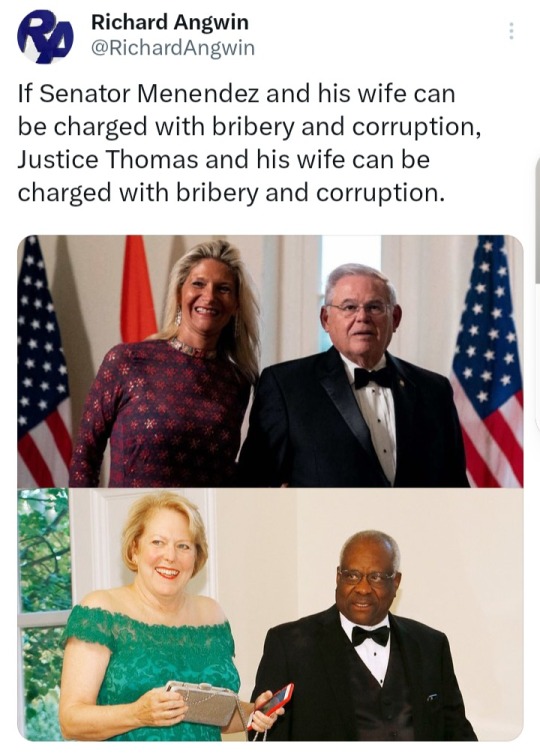
3K notes
·
View notes
Text
SoCal Gas spent millions on astroturf ops to fight climate rules
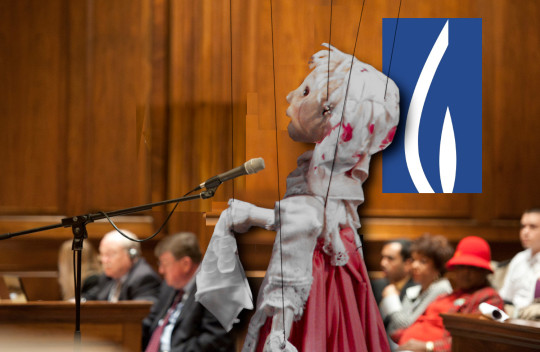
Today (19 Aug), I'm appearing at the San Diego Union-Tribune Festival of Books. I'm on a 2:30PM panel called "Return From Retirement," followed by a signing:
https://www.sandiegouniontribune.com/festivalofbooks

It's a breathtaking fraud: SoCal Gas, the largest gas company in America, spent millions secretly paying people to oppose California environmental regulations, then illegally stuck its customers with the bill. We Californians were forced to pay to lobby against our own survival:
https://www.sacbee.com/news/politics-government/capitol-alert/article277266828.html
The criminal scheme is spelled out in eye-watering detail in a superb investigative report by Joe Rubin and Ari Plachta for the Sacramento Bee, which names the law firms and individual lawyers involved in the scam.
Here's the situation: SoCal Gas is California's private, regulated gas monopoly. They are allowed to lobby, but are legally required to charge their lobbying activities to their shareholders, and are prohibited from raising customer rates to pay for lobbying.
The company spent years secretly violating this rule, in the sleaziest way possible: working with corporate cartels like the California Restaurant Association and BizFed, the monopoly paid BigLaw white-shoe firms to procure people who posed as concerned citizens in order to oppose climate regulations that are essential to the state's very survival.
The bill topped $36 million – and it was illegally charged to its customers, the Californians whose immediate health and long-term survival these efforts opposed. SoCal Gas refuses to disclose the full extent of the spending, as do its lawyer-procurers, who cite legal confidentiality and a First Amendment right to secretly seek to influence policy in their refusal to disclose their profits from this illegal conduct.
The law firms involved are a who's-who of California's most prominent corporate fixers, including Reichman Jorgensen and Holland & Knight. The partners involved have a long rap sheet for anti-climate dirty tricking, most notably Jennifer Hernandez, notorious in climate justice history for an incident where activists claim she posed as one of them, infiltrating a campaign to force corporate despoilers to clean up their pollution in order to sabotage it, while secretly on a wealthy, prominent landowner's payroll.
Hernandez claims to care about the environment and says that her longstanding, corporate-funded, extensive campaigns and lawsuits against state environmental regulations are motivated by concern over their impact on working people. Her firm, Holland & Knight, denies serving SoCal Gas in opposing gas regulations, but it received $594k in ratepayer dollars, and submitted comments opposing the rules on its own behalf. Those comments were nearly identical to the comments submitted by SoCal Gas.
Hernandez also represents an obscure organization called The Two Hundred for Home Ownership in "a flurry of lawsuits" over California Air Resources Board rules on pollution, seeking to overturn the state's landmark climate change regulations.
Two Hundred for Home Ownership was founded by Robert Apodaca, who told the Bee that Hernandez's work for him is pro bono and not funded by SoCal Gas, but his entry into the fray occurred just as SoCalGas was founding an astroturf group called Californians for Fair and Balanced Energy (C4BES), which pretended to be an independent organization, disguising its relationship with SoCal Gas.
Apodaca is also founder of United Latinos Vote, an organization that had been largely dormant for seven years, not receiving any donations, until 2018, when the California Building Industry Association gave it $99k. The CBIA is a large-dollar recipient of donations from SoCal Gas, and its CEO insists that it was not acting on SoCal Gas's behalf when it made its unpredented donation to Apodaca.
The CBIA donation to United Latinos Vote was forerunner to a flood of corporate donations from the likes of Chevron, Marathon and Phillips 66. Shortly after receiving this cash, United Latinos Vote ran a full page ad in the LA Times, accusing the Sierra Club of pushing for anti-gas appliance rules that would harm working class Latino families.
This ad, in turn, featured prominently in advocacy by the SoCal Gas front group C4BES, funded with $29.1m in ratepayer money, which it then spent seeking to link clean appliance rules with anti-Latino racism. A quarter of California's carbon emissions come from home gas use.
SoCal Gas is regulated by the California Public Utility Commission (CPUC), which tolerated this mounting illegal conduct for many years, even as the company circulated internal memos as early as 2015 discussing its plans to oppose electrification in the state on the basis that it constituted "a significant risk to our business."
But last year, CPUC fined SoCal Gas $10m. Now, CPUC's Public Advocate office has filed a damning, extensive report on SoCal Gas's unlawful conduct, seeking $80m in rate cuts to compensate Californians for the funds misappropriated to protect the company's shareholder interests:
https://docs.cpuc.ca.gov/PublishedDocs/Efile/G000/M517/K407/517407314.PDF
Additionally, the Public Advocate is demanding $233m in fines for the company's refusal to allow investigators to audit its books and discover the full extent of the fraud.
SoCal Gas is the nation's largest utility, but (incredibly), it's not the dirtiest. That prize goes to Ohio's FirstEnergy, which handed $60m in ratepayer dollars to state politicians in illegal bribes in exchange for coal and nuclear subsidies and cancellation of state climate rules. That scandal led to GOP speaker of the Ohio House Larry Householder being sentenced to 20 years in prison:
https://en.wikipedia.org/wiki/Ohio_nuclear_bribery_scandal
There is something extraordinarily sleazy about using ratepayers' own money to lobby against their interests. SoCal Gas and its Big Law enablers have funneled millions in Californian's money into campaigns to poison us and boil us alive, and they did it while using workers and racialized people as human shields.

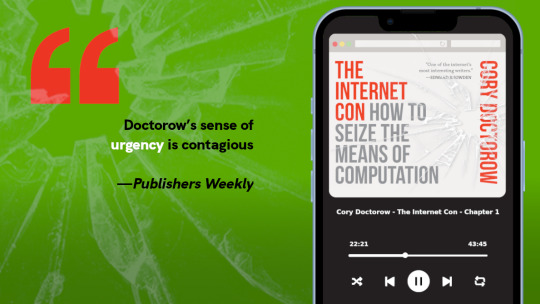
I'm kickstarting the audiobook for "The Internet Con: How To Seize the Means of Computation," a Big Tech disassembly manual to disenshittify the web and make a new, good internet to succeed the old, good internet. It's a DRM-free book, which means Audible won't carry it, so this crowdfunder is essential. Back now to get the audio, Verso hardcover and ebook:
http://seizethemeansofcomputation.org

If you'd like an essay-formatted version of this post to read or share, here's a link to it on pluralistic.net, my surveillance-free, ad-free, tracker-free blog:
https://pluralistic.net/2023/08/19/cooking-the-books-with-gas/#reichman-jorgensen

Image:
Maryland GovPics (modified)
https://www.flickr.com/photos/mdgovpics/6635539089/
Jackie (modified)
https://www.flickr.com/photos/79874304@N00/197532792
CC BY 2.0
https://creativecommons.org/licenses/by/2.0/
#pluralistic#socal gas#california#climate emergency#climate denial#Reichman Jorgensen#california restaurant association#astroturf#Holland and Knight#puc#cpuc#california public utility company#fraud#Alice Walton#bribery#ohio#bizfed#Jennifer Hernandez#American Gas Association#The Two Hundred for Home Ownership#Robert Apodaca#Californians for Fair and Balanced Energy#C4BES#United Latinos Vote#Chevron#Marathon#Phillips 66#sacramento bee#sacbee#Joe Rubin
4K notes
·
View notes
Text
BREAKING: Arizona Republican Party chair Jeff DeWit caught on a secret recording trying to bribe Kari Lake not to run for the Senate.🤔
#pay attention#educate yourselves#educate yourself#knowledge is power#reeducate yourself#reeducate yourselves#think about it#think for yourselves#think for yourself#do your homework#do some research#do your own research#ask yourself questions#question everything#politics#bribery#news
552 notes
·
View notes
Text

AIPAC, a rightwing conservative, quasi-religious, foreign organization, is interfering with U.S. elections and shaping who is and who isn’t a member of Congress.
AIPAC is currently targeting progressives like Ilhan Omar, Rashida Tlaib, Summer Lee, Jamaal Bowman, Greg Casar, Delia Ramirez, Maxwell Frost, Alexandria Ocasio-Cortez, and others who do not feel beholden to Israel and are sympathetic to Palestinians.
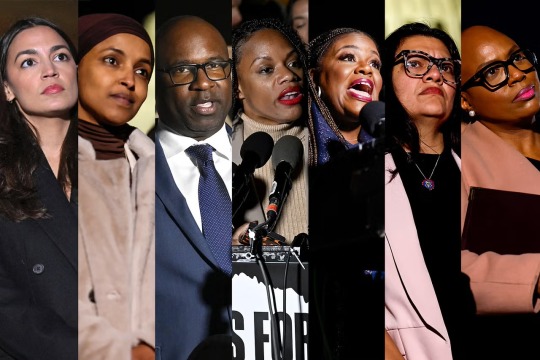
If AIPAC was a super PAC funded by North Korea, or China, or Russia, or Iran—and interfering in elections by financing the campaigns of specific candidates—almost every member of Congress would be freaking out. And rightly so. This is no different.
#politics#aipac#palestine#israel#foreign agents#citizens united#cori bush#jamaal bowman#rashida tlaib#summer lee#ilhan omar#alexandria ocasio cortez#the squad#foreign lobbyists#lobbyists#election interference#election integrity#bribery
134 notes
·
View notes
Text
Saudi Arabia is scheming with Russia to reduce oil production to drive up gas prices before the 2024 election.
They both want Traitor Trump back in office to do their bidding. Putin has undue influence over Trump for reasons yet unknown. Saudi Arabia spends very large sums on Trump properties and businesses and has "invested" billions with Trump's son-in-law Jared Kushner.
Even more reasons for the one man crime spree to never get anywhere near the Office of the President of the United States of America ever again!
#TraitorTrump#TrumpCrimeSpree#ForeignAdversaries#Bribery#Emoluments#TrumpCrimeFamily#Election2024#CorruptMAGA#MAGATraitors#FossilFuels#OPEC#Russia#SaudiArabia#AlterNet
56 notes
·
View notes
Text
start my crusade with me and you will get a free stanley.

#bribery#stanley parable ultra deluxe#tsp#pissfingers#tsp stanley#the stanley parable#stanley tsp#427#shitposting#pre made fish post#shitpost#themrfisherotexperience
72 notes
·
View notes
Text
Drabble - “just pretend to be my date”
“Just pretend to be my date.”
Hermione continued her insistent poking on Draco’s arm. He was annoyingly uninterested in her dilemma.
“I don’t bring dates to these sort of occasions, Granger. It would completely ruin the “readily available for sex” persona I’ve worked so hard to build.”
Hermione watched McLaggen set his sights on her. He waved in recognition and began his way over to where they stood at the bar.
She gripped Malfoy’s arm.
“Please! Please, Malfoy, I’m desperate.”
His body suddenly turned to face hers, and the unexpected loss of his body mass under her hands caused her to stumble into him. He caught her before she could inflict any bodily harm upon herself - or their glasses of champagne.
She looked up into his piercing grey eyes and was, for a moment, quite lost in them, until she remembered that she really needed this man to pretend to be in love with her. At least for as long as it took for Cormac McLaggen to call off his pursuit of her and find a new target.
Every Ministry party was the same. She showed up, dateless, spent the night bouncing around different groups of coworkers in her effort to avoid Cormac and ended the night alone because she had been too busy hiding out to flirt with anyone.
She realized she’d been resting in Malfoy’s arms for too long. She adjusted herself upright and felt his hands leave warm imprints where they’d held her body.
“So? Will you do it?” She gave her most grotesquely pleading pout that she could muster.
“Not until you tell me what’s in it for me, Granger?” He eyed her curiously, taking another swig of his drink. His eyes sparkled menacingly.
Hermione peaked over his shoulder to see she’d gained a few minutes, thanks to Luna - bless her, Hermione owed her big time - who seemed to have stopped McLaggen for a chat. She had a Quibbler in her hands. Hermione strained to read the headline: Tinder: A Muggle Solution to Dating Woes
This was a good sign. Luna could talk about the curiosity of Muggle inventions to a wall. This bought her at least a few more minutes.
Now, how could she bribe Malfoy to help her?
“I’ll - I’ll file your paperwork in the office for an entire month.”
“I’m all caught up on my filing, unlike yourself.”
She did have an embarrassingly large backlog of papers to be sorted.
“Fine - I’ll... I’ll quit suggesting better ways you could have completed your work assignments.”
“I do hate it when you do that..”
“So we have a deal?”
His lips curved into a smirk and he closed the distance between them again, as if he had a secret to tell that only she could hear.
“When I wanted to know what would be in this for me, I wasn’t exactly thinking about - Ministry related things.”
This confused her. “Then when do you need help? I’m not very handy, but I can bake a mean pie - ”
Malfoy maintained his closeness. “I was thinking more along the lines of...tonight.”
“Oh Merlin, he’s back on the move. Great, okay. I’ll help you tonight.”
“I’m not sure you’re understanding me, Granger.” She felt a sudden chill as Malfoy reached a finger under her chin, gentle but assertive. She could’ve easily pulled away, but she couldn’t, for the life of her, remember how to move her head.
Her breathing hitched. His eyes, though still sparkling, had turned dangerous. She couldn’t look away.
“Tonight. My apartment.”
McLaggen was meters away.
“Okay,” she said, her voice quivered, betraying her uncertainty of what she was agreeing to. She decided not to analyze the fact that spending a night with Malfoy was currently the better option than having a conversation with Cormac.
A much better choice. It wasn’t even a contest.
Malfoy used his grasp on her chin to bring her face closer to his.
“Anything I ask from you - do you agree?”
“Hermione!” McLaggen called. Only a single person stood between him and Hermione’s spot at the bar.
“Malfoy, please!”
Malfoy dropped his hand from her chin and snaked his arm around the silk fabric clinging to her waist. It was quite a thin barrier between her skin and the strength of his arm. The feeling was strangely intimate.
He turned them so that they faced outward, toward their approaching guest.
“Hey! Glad I found you - that Loony chick caught me up in a very weird conversation about Muggle dating practices. My date ditched me tonight, so I thought I’d come find you and buy you a drink.”
McLaggen looked from Malfoy to Hermione, then down to her waist where, to any outsider, it would look as though she’d already been claimed.
“She already has a drink. But I’ll take another one, if you’re offering.” Draco’s stare was focused, as if challenging McLaggen to even attempt taking what was rightfully his. Draco tightened his grasp on her hip, causing her dress to slide up daringly.
“Ah, well. Looks like I’m too late. Perhaps another time, Hermione?”
“Actually, I think her drinks are sorted for the next - I dunno - ten of these parties. Possibly more, if she’s feeling extra helpful tonight.”
Malfoy pulled away from her fingers, which had just pinched him as hard as they could.
McLaggen first looked confused, then as though he wanted to say something - perhaps to ask Hermione what her thoughts were on his offer - but to her relief, he decided that this encounter was no longer worth his time, and sauntered away. He made sure to take the exit furthest away from Luna Lovegood.
Hermione expected to feel again the removal of Malfoy’s arm from around her, but he only pulled her closer. Using his free hand, he passed her her glass of champagne.
“So - tonight?” she asked, inquisitive to what he had in store for her.
“You have no idea what you’ve signed up for, Granger.”
#dramione#dramione drabble#draco x hermione#Draco Malfoy#Hermione Granger#luna lovegood#cormac mclaggen#hermione x draco#Dramione fic#dramione fanfic#pretend date#bribery#drabble#harry potter
618 notes
·
View notes
Text
One of the Ontario Provincial Police (OPP) officers accused of taking a bribe in exchange for sending business to a Toronto-area towing company(opens in a new tab) has been acquitted.
Following a four-day trial in November, Hon. Justice Loww acquitted Const. Simon Bridle for allegations of breach of trust in relation to tow truck corruption.
Bridle was alleged to have favoured one specific tow operator to remove vehicles from drivers charged with stunt driving and to have received the benefit of a 2016 Chevrolet Silverado from Steve Pillay, the tow company owner, who was paying the lease payments.
Continue Reading
Tagging @politicsofcanada
#cdnpoli#canada#canadian politics#canadian news#police#ontario#ontario provincial police#corruption#bribery
59 notes
·
View notes
Text

326 notes
·
View notes
Text
Unmasking the Actions of Corrupt Politicians: A Closer Look at Political Malpractice
Corrupt politicians engage in a wide range of unethical and illegal activities to maintain and expand their power, often at the expense of the public interest. Some common actions and behaviors associated with corrupt politicians include:
Bribery: Accepting money, gifts, or favors in exchange for political favors, such as favorable legislation or government contracts.
Embezzlement: Misappropriating public funds for personal use or diverting money intended for public programs.
Nepotism: Appointing or promoting family members and close associates to government positions, often without regard for their qualifications.
Cronyism: Favoring friends and allies in political appointments, regardless of their competence or suitability for the role.
Kickbacks: Receiving a portion of the funds from government contracts awarded to certain businesses or individuals.
Extortion: Using threats or coercion to obtain money or support for personal or political gain.
Money Laundering: Funneling ill-gotten gains through legitimate financial channels to conceal their origin.
Corrupt Campaign Financing: Accepting illegal campaign contributions or using campaign funds for personal expenses.
Obstruction of Justice: Interfering with investigations, destroying evidence, or intimidating witnesses to avoid accountability.
Vote Rigging: Manipulating election results through voter suppression, ballot stuffing, or other fraudulent means.
Abuse of Power: Using one's political position to harass, intimidate, or retaliate against perceived enemies or whistleblowers.
Influence Peddling: Selling access to government officials or decision-makers to private interests seeking favorable outcomes.
Gerrymandering: Manipulating electoral district boundaries to favor one's political party and ensure re-election.
Lobbying Malpractice: Engaging in unethical lobbying practices, such as misrepresenting facts or exerting undue influence on legislators.
Conflict of Interest: Failing to disclose or address personal financial interests that may compromise one's ability to make impartial decisions.
Corrupt politicians undermine the principles of democracy, erode public trust in government, and divert resources away from essential public services. It's crucial to combat corruption through transparency, accountability, and legal mechanisms to uphold the integrity of political systems.
#philosophy#knowledge#learning#education#chatgpt#ethics#politics#economics#Corruption#Political Ethics#Government Accountability#Bribery#Abuse of Power#Transparency#Democracy#Political Scandals#Public Trust#Accountability Measures
62 notes
·
View notes
Text
Favouritism
Also on AO3
@foxquinweek - day 2 (alt): "You know you love me."
@clonefandomevents - Corrie Guard Bingo: coffee
“I love you.”
“Are you talking to me or the caf?”
Fox eyes Quinlan over the rim of his cup, the silence stretching long.
“On the one hand, this is better-than-usual caf. But on the other, you brought it for me. Tough choice.”
Quinlan saunters around to lean against the back of Fox’s office chair, draping his arms over his shoulders and nuzzling at his neck.
“Can I perhaps assist you in making that decision?”
“Bribing a Republic officer? Shame on you! And while I’m on duty. No, I’m afraid the caf must win my love today.”
Quinlan just laughs.
29 notes
·
View notes
Text
Prison-tech is a scam - and a harbinger of your future

If you'd like an essay-formatted version of this post to read or share, here's a link to it on pluralistic.net, my surveillance-free, ad-free, tracker-free blog:
https://pluralistic.net/2024/02/14/minnesota-nice/#shitty-technology-adoption-curve

Here's how the shitty technology adoption curve works: when you want to roll out a new, abusive technology, look for a group of vulnerable people whose complaints are roundly ignored and subject them to your bad idea. Sand the rough edges off on their bodies and lives. Normalize the technological abuse you seek to inflict.
Next: work your way up the privilege gradient. Maybe you start with prisoners, then work your way up to asylum seekers, parolees and mental patients. Then try it on kids and gig workers. Now, college students and blue collar workers. Climb that curve, bit by bit, until you've reached its apex and everyone is living with your shitty technology:
https://pluralistic.net/2021/02/24/gwb-rumsfeld-monsters/#bossware
Prisoners, asylum seekers, drug addicts and other marginalized people are the involuntary early adopters of every form of disciplinary technology. They are the leading indicators of the ways that technology will be ruining your life in the future. They are the harbingers of all our technological doom.
Which brings me to Minnesota.
Minnesota is one of the first states make prison phone-calls free. This is a big deal, because prison phone-calls are a big business. Prisoners are literally a captive audience, and the telecommunications sector is populated by sociopaths, bred and trained to spot and exploit abusive monopoly opportunities. As states across America locked up more and more people for longer and longer terms, the cost of operating prisons skyrocketed, even as states slashed taxes on the rich and turned a blind eye to tax evasion.
This presented telco predators with an unbeatable opportunity: they approached state prison operators and offered them a bargain: "Let us take over the telephone service to your carceral facility and we will levy eye-watering per-minute charges on the most desperate people in the world. Their families – struggling with one breadwinner behind bars – will find the money to pay this ransom, and we'll split the profits with you, the cash-strapped, incarceration-happy state government."
This was the opening salvo, and it turned into a fantastic little money-spinner. Prison telco companies and state prison operators were the public-private partnership from hell. Prison-tech companies openly funneled money to state coffers in the form of kickbacks, even as they secretly bribed prison officials to let them gouge their inmates and inmates' families:
https://www.motherjones.com/politics/2019/02/mississippi-corrections-corruption-bribery-private-prison-hustle/
As digital technology got cheaper and prison-tech companies got greedier, the low end of the shitty tech adoption curve got a lot more crowded. Prison-tech companies started handing out "free" cheap Android tablets to prisoners, laying the groundwork for the next phase of the scam. Once prisoners had tablets, prisons could get rid of phones altogether and charge prisoners – and their families – even higher rates to place calls right to the prisoner's cell.
Then, prisons could end in-person visits and replace them with sub-skype, postage-stamp-sized videoconferencing, at rates even higher than the voice-call rates. Combine that with a ban on mailing letters to and from prisoners – replaced with a service that charged even higher rates to scan mail sent to prisoners, and then charged prisoners to download the scans – and prison-tech companies could claim to be at the vanguard of prison safety, ending the smuggling of dope-impregnated letters and other contraband into the prison system.
Prison-tech invented some wild shit, like the "digital stamp," a mainstay of industry giant Jpay, which requires prisoners to pay for "stamps" to send or receive a "page" of email. If you're keeping score, you've realized that this is a system where prisoners and their families have to pay for calls, "in-person" visits, handwritten letters, and email.
It goes on: prisons shuttered their libraries and replaced them with ebook stores that charged 2-4 times the prices you'd pay for books on the outside. Prisoners were sold digital music at 200-300% markups relative to, say, iTunes.
Remember, these are prisoners: locked up for years or decades, decades during which their families scraped by with a breadwinner behind bars. Prisoners can earn money, sure – as much as $0.89/hour, doing forced labor for companies that contract with prisons for their workforce:
https://www.prisonpolicy.org/blog/2017/04/10/wages/
Of course, there's the odd chance for prisoners to make really big bucks – $2-5/day. All they have to do is "volunteer" to fight raging wildfires:
https://www.hcn.org/articles/climate-desk-wildfire-california-incarcerated-firefighters-face-dangerous-work-low-pay-and-covid19/
So those $3 digital music tracks are being bought by people earning as little as $0.10/hour. Which makes it especially galling when prisons change prison-tech suppliers, whereupon all that digital music is deleted, wiping prisoners' media collection out – forever (literally, for prisoners serving life terms):
https://www.eff.org/deeplinks/2018/08/captive-audience-how-floridas-prisons-and-drm-made-113m-worth-prisoners-music
Let's recap: America goes on a prison rampage, locking up ever-larger numbers of people for ever-longer sentences. Once inside, prisoners had their access to friends and family rationed, along with access to books, music, education and communities outside. This is very bad for prisoners – strong ties to people outside is closely tied to successful reentry – but it's great for state budgets, and for wardens, thanks to kickbacks:
https://www.prisonpolicy.org/blog/2021/12/21/family_contact/
Back to Minnesota: when Minnesota became the fourth state in the USA where the state, not prisoners, would pay for prison calls, it seemed like they were finally breaking the vicious cycle in which every dollar ripped off of prisoners' family paid 40 cents to the state treasury:
https://www.kaaltv.com/news/no-cost-phone-calls-for-those-incarcerated-in-minnesota/
But – as Katya Schwenk writes for The Lever – what happened next is "a case study in how prison communication companies and their private equity owners have managed to preserve their symbiotic relationship with state corrections agencies despite reforms — at the major expense of incarcerated people and their families":
https://www.levernews.com/wall-streets-new-prison-scam/
Immediately after the state ended the ransoming of prisoners' phone calls, the private-equity backed prison-tech companies that had dug their mouth-parts into the state's prison jacked up the price of all their other digital services. For example, the price of a digital song in a Minnesota prison just jumped from $1.99 to $2.36 (for prisoners earning as little as $0.25/hour).
As Paul Wright from the Human Rights Defense Center told Schwenk, "The ideal world for the private equity owners of these companies is every prisoner has one of their tablets, and every one of those tablets is hooked up to the bank account of someone outside of prison that they can just drain."
The state's new prison-tech supplier promises to double the amount of kickbacks it pays the state each year, thanks to an aggressive expansion into games, money transfers, and other "services." The perverse incentive isn't hard to spot: the more these prison-tech companies charge, the more kickbacks they pay to the prisons.
The primary prison-tech company for Minnesota's prisons is Viapath (nee Global Tel Link), which pioneered price-gouging on in-prison phone calls. Viapath has spent the past two decades being bought and sold by different private equity firms: Goldman Sachs, Veritas Capital, and now the $46b/year American Securities.
Viapath competes with another private equity-backed prison-tech giant: Aventiv (Securus, Jpay), owned by Platinum Equity. Together, Viapath and Aventiv control 90% of the prison-tech market. These companies have a rap-sheet as long as your arm: bribing wardens, stealing from prisoners and their families, and recording prisoner-attorney calls. But these are the kinds of crimes the state punishes with fines and settlements – not by terminating its contracts with these predators.
These companies continue to flout the law. Minnesota's new free-calls system bans prison-tech companies from paying kickbacks to prisons and prison-officials for telcoms services, so the prison-tech companies have rebranded ebooks, music, and money-transfers as non-communications products, and the kickbacks are bigger than ever.
This is the bottom end of the shitty technology adoption curve. Long before Ubisoft started deleting games that you'd bought a "perpetual license" for, prisoners were having their media ganked by an uncaring corporation that knew it was untouchable:
https://www.youtube.com/watch?v=VIqyvquTEVU
Revoking your media, charging by the byte for messaging, confiscating things in the name of security and then selling them back to you – these are all tactics that were developed in the prison system, refined, normalized, and then worked up the privilege gradient. Prisoners are living in your technology future. It's just not evenly distributed – yet.
As it happens, prison-tech is at the heart of my next novel, The Bezzle, which comes out on Feb 20. This is a followup to last year's bestselling Red Team Blues, which introduced the world to Marty Hench, a two-fisted, hard-bitten, high-tech forensic accountant who's spent 40 years busting Silicon Valley finance scams:
https://us.macmillan.com/books/9781250865878/thebezzle
In The Bezzle, we travel with Marty back to the mid 2000s (Hench is a kind of tech-scam Zelig and every book is a standalone tale of high-tech ripoffs from a different time and place). Marty's trying to help his old pal Scott Warms, a once-high-flying founder who's fallen prey to California's three-strikes law and is now facing decades in a state pen. As bad as things are, they get worse when the prison starts handing out "free" tablet and closing down the visitation room, the library, and the payphones.
This is an entry to the thing I love most about the Hench novels: the opportunity to turn all this dry, financial skullduggery into high-intensity, high-stakes technothriller plot. For me, Marty Hench is a tool for flensing the scam economy of all its layers of respectability bullshit and exposing the rot at the core.
It's not a coincidence that I've got a book coming out in a week that's about something that's in the news right now. I didn't "predict" this current turn – I observed it. The world comes at you fast and technology news flutters past before you can register it. Luckily, I have a method for capturing this stuff as it happens:
https://pluralistic.net/2021/05/09/the-memex-method/
Writing about tech issues that are long-simmering but still in the periphery is a technique I call "predicting the present." It's the technique I used when I wrote Little Brother, about out-of-control state surveillance of the internet. When Snowden revealed the extent of NSA spying in 2013, people acted as though I'd "predicted" the Snowden revelations:
https://www.wired.com/story/his-writing-radicalized-young-hackers-now-he-wants-to-redeem-them/
But Little Brother and Snowden's own heroic decision have a common origin: the brave whistleblower Mark Klein, who walked into EFF's offices in 2006 and revealed that he'd been ordered by his boss at AT&T to install a beam-splitter into the main fiber trunk so that the NSA could illegally wiretap the entire internet:
https://www.eff.org/document/public-unredacted-klein-declaration
Mark Klein inspired me to write Little Brother – but despite national press attention, the Klein revelations didn't put a stop to NSA spying. The NSA was still conducting its lawless surveillance campaign in 2013, when Snowden, disgusted with NSA leadership for lying to Congress under oath, decided to blow the whistle again:
https://apnews.com/article/business-33a88feb083ea35515de3c73e3d854ad
The assumption that let the NSA get away with mass surveillance was that it would only be weaponized against the people at the bottom of the shitty technology adoption curve: brown people, mostly in other countries. The Snowden revelations made it clear that these were just the beginning, and sure enough, more than a decade later, we have data-brokers sucking up billions in cop kickbacks to enable warrantless surveillance, while virtually following people to abortion clinics, churches, and protests. Mass surveillance is chugging its way up the shitty tech adoption curve with no sign of stopping.
Like Little Brother, The Bezzle is intended as a kind of virtual flythrough of what life is like further down on that curve – a way for readers who have too much agency to be in the crosshairs of a company like Viapath or Avently right now to wake up before that kind of technology comes for them, and to inspire them to take up the cause of the people further down the curve who are mired in it.
The Bezzle is an intense book, but it's also a very fun story – just like Little Brother. It's a book that lays bare the internal technical workings of so many scams, from multi-level marketing to real-estate investment trusts, from music royalty theft to prison-tech, in the course of an ice-cold revenge plot that keeps twisting to the very last page.
It'll drop in six days. I hope you'll check it out:
https://us.macmillan.com/books/9781250865878/thebezzle
#pluralistic#the bezzle#marty hench#books#prison-tech#scams#jpay#securus#minnesota#prisones#shitty technology adoption curve#drm#enshittification#kickbacks#corruption#private equity#viapath#global tel link#bribery#aventiv#disciplinary technology#fcc#predicting the present#carceral state
586 notes
·
View notes
Note
Also in search of my 'I voted' sticker. (Cal wuth Boba's helmet?)
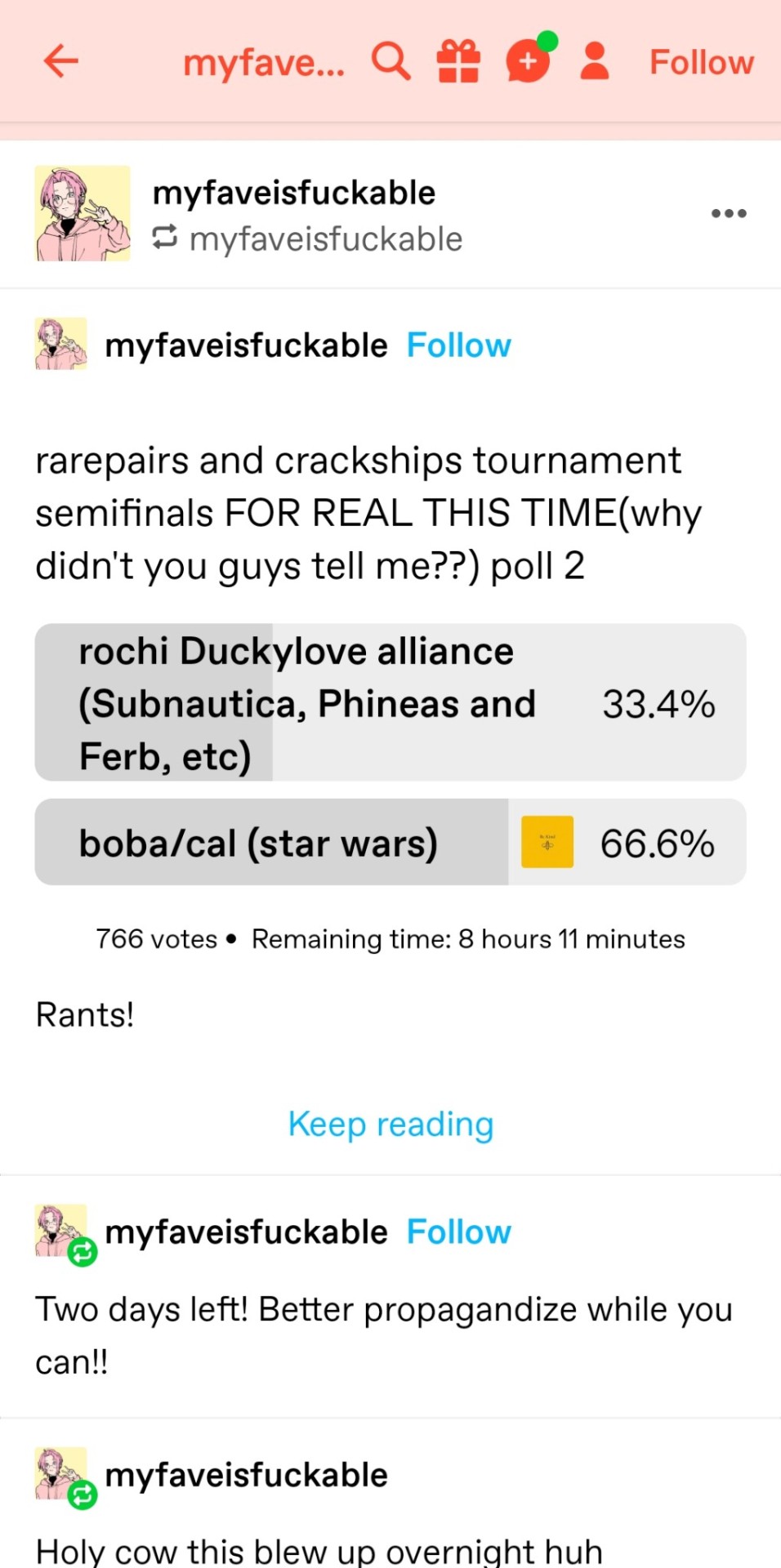

It’s difficult to explain how it feels to simultaneously witness and experience such things.
#my art#kesett#cal kestis#boba fett#star wars#star wars fan art#star wars fallen order#jedi survivor#calboba#bribery
87 notes
·
View notes
Text
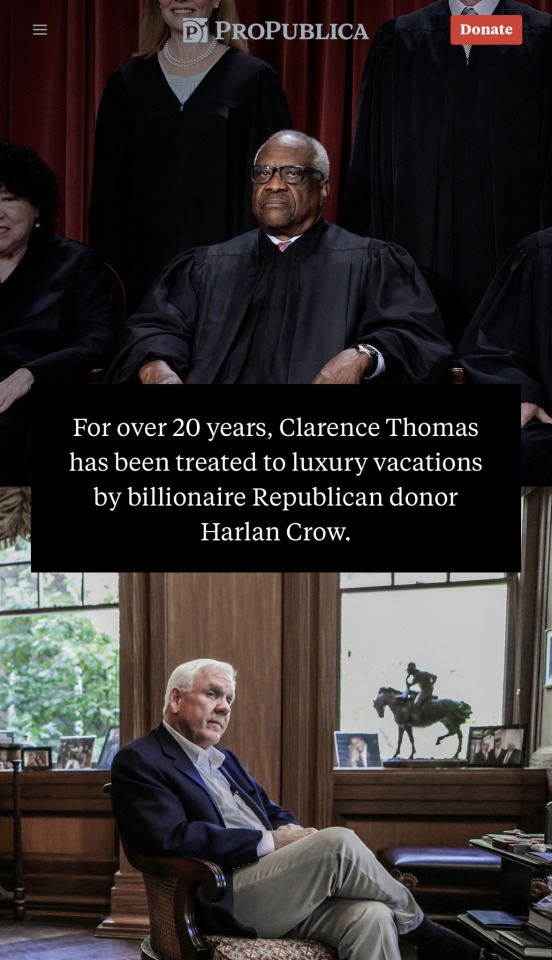
Clarence Thomas secretly accepted luxury trips from a major GOP donor
Island-hopping on a superyacht. Private jet rides around the world. The undisclosed gifts to Thomas have no known precedent in the modern history of the Supreme Court. “It’s incomprehensible to me that someone would do this,” says one former judge.
IN LATE JUNE 2019, right after the U.S. Supreme Court released its final opinion of the term, Justice Clarence Thomas boarded a large private jet headed to Indonesia. He and his wife were going on vacation: nine days of island-hopping in a volcanic archipelago on a superyacht staffed by a coterie of attendants and a private chef.
If Thomas had chartered the plane and the 162-foot yacht himself, the total cost of the trip could have exceeded $500,000. Fortunately for him, that wasn’t necessary: He was on vacation with real estate magnate and Republican megadonor Harlan Crow, who owned the jet — and the yacht, too.

Clarence Thomas and his wife, Ginni, front left, with Harlan Crow, back right, and others in Flores, Indonesia, in July 2019. Credit: via Instagram
For more than two decades, Thomas has accepted luxury trips virtually every year from the Dallas businessman without disclosing them, documents and interviews show. A public servant who has a salary of $285,000, he has vacationed on Crow’s superyacht around the globe. He flies on Crow’s Bombardier Global 5000 jet. He has gone with Crow to the Bohemian Grove, the exclusive California all-male retreat, and to Crow’s sprawling ranch in East Texas. And Thomas typically spends about a week every summer at Crow’s private resort in the Adirondacks.
The extent and frequency of Crow’s apparent gifts to Thomas have no known precedent in the modern history of the U.S. Supreme Court.
These trips appeared nowhere on Thomas’ financial disclosures. His failure to report the flights appears to violate a law passed after Watergate that requires justices, judges, members of Congress and federal officials to disclose most gifts, two ethics law experts said. He also should have disclosed his trips on the yacht, these experts said.
(continue reading)
#politics#republicans#scotus#clarence thomas#harlan crow#crony capitalism#bribery#quid pro quo#legal#ginni thomas
350 notes
·
View notes
Text
Personally I believe that every politician
should have an Edward Nygma who trusts them to win without bribing, and who'd take back the bribes behind their back.
Being in a Nygmobblepot relationship might also help with, you know, queer rights and stuff.
#gotham season 3 episode 4#gotham season 3 episode 3#gotham#gotham tv#politics#bribery#election fraud#election 2024#elections#oswald cobblepot#edward nygma#edward nygma and oswald cobblepot#nygmobblepot#mayor cobblepot#gotham mayor era#oswald cobblepot mayor era#edward nygma mayor era#funny#humour#lgbtq
34 notes
·
View notes
